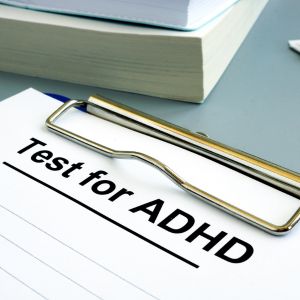
ADHD Assessment Service by Professional Psychologists
Attention-Deficit/Hyperactivity Disorder (ADHD) is a neurodevelopmental condition that affects focus, impulsivity, and hyperactivity. It impacts both children and adults, often leading to difficulties at school, work, and in personal life. If you or a loved one is struggling with attention or impulse control, an ADHD assessment by a professional psychologist can provide clarity, diagnosis, and access to the right support.
In this guide, we will walk you through the ADHD assessment process, explain the criteria for an ADHD diagnosis in the UK, and answer common questions about the assessment.
What is an ADHD Assessment?
An ADHD assessment is a comprehensive evaluation conducted by a licensed psychologist or psychiatrist to determine whether an individual meets the diagnostic criteria for Attention-Deficit/Hyperactivity Disorder (ADHD). This evaluation considers various aspects of behaviour, cognitive function, and development.
Key Components of an ADHD Assessment:
- Clinical Interview: A detailed interview with the individual, and sometimes family members or teachers, to gather information about symptoms, medical history, and life experiences.
- Behavioural Questionnaires: Standardised questionnaires or rating scales, such as the Conners’ Adult ADHD Rating Scales (CAARS) or the ADHD Rating Scale, are used to assess attention, hyperactivity, and impulse control.
- Cognitive Assessments: Psychological tests to measure executive function, working memory, and processing speed may be used to evaluate cognitive abilities related to ADHD.
- Developmental History: For children, the assessment includes gathering information about early childhood development, school performance, and social behaviours. For adults, the psychologist reviews childhood symptoms and how they may have evolved.
- Observations: Direct observations of behaviour, either during the assessment or based on reports from others, help provide a fuller picture of the individual’s functioning in different settings.
Who Should Seek an ADHD Assessment?
Individuals who experience chronic difficulties with focus, impulsiveness, forgetfulness, disorganization, or hyperactivity that interfere with daily life may benefit from an ADHD assessment. This includes both children and adults, as ADHD often goes undiagnosed in adulthood.
The Criteria for ADHD Diagnosis in the UK
In the UK, ADHD is diagnosed based on the criteria outlined in the DSM-5 (Diagnostic and Statistical Manual of Mental Disorders, Fifth Edition) or the ICD-11 (International Classification of Diseases). A diagnosis is made after a thorough assessment by a qualified professional, typically a psychologist or psychiatrist, and must meet specific guidelines.

Key Diagnostic Criteria for ADHD in the UK:
- Persistent Symptoms of Inattention:
- Difficulty paying attention to details, making careless mistakes in work or school.
- Trouble sustaining focus in tasks or activities.
- Frequently loses items necessary for tasks, such as keys, books, or tools.
- Easily distracted by unrelated thoughts or external stimuli.
- Hyperactivity and Impulsivity:
- Fidgeting or an inability to sit still in situations where remaining seated is expected.
- Excessive talking or interrupting others in conversations.
- Difficulty waiting their turn or being overly impatient.
- Acts without thinking, often resulting in risky behaviors.
- Symptoms Must Be Present for at Least Six Months:
- For a diagnosis, symptoms must have been present for at least six months and inconsistent with developmental norms.
- Symptoms Present in Multiple Settings:
- Symptoms must occur in more than one setting, such as at home, school, or work, to ensure they are not situational.
- Symptoms Start in Childhood:
- Although ADHD can be diagnosed in adults, signs of the disorder must have been present before the age of 12, even if they were not formally diagnosed at that time.
- Significant Impairment in Daily Life:
- Symptoms must cause noticeable difficulties in social, academic, or occupational functioning.
- Symptoms Not Explained by Other Conditions:
- The assessment must rule out other conditions, such as anxiety, depression, or learning disabilities, that may explain the symptoms.
What is Involved in an ADHD Assessment?
The ADHD assessment process is thorough and designed to gather comprehensive information and ensure an accurate diagnosis. Here’s what to expect:
1. Initial Consultation:
The assessment process begins with an initial consultation, where you discuss concerns, symptoms, and the reasons for seeking an evaluation. This session allows the psychologist to explain the assessment steps and gather background information.
2. Detailed Developmental and Medical History:
The psychologist will ask questions about early development, educational history, and current challenges. Input from parents or teachers is crucial for children, and reflecting on childhood symptoms alongside current functioning is important for adults.
3. Standardised Rating Scales and Questionnaires:
You (and possibly family members or teachers) will complete questionnaires that measure behaviours related to inattention, hyperactivity, and impulsivity. These tools help the psychologist understand the frequency and severity of the symptoms.
4. Cognitive and Behavioral Testing:
In some cases, cognitive tests may be conducted to evaluate attention span, working memory, and executive function. These tests provide objective data that complements the behavioural observations.
5. Observations and Reports from Others:
Reports from teachers, partners, or colleagues may be requested to understand how the symptoms affect the individual in different environments, such as school or work.
6. Diagnosis and Feedback Session:
Once all the assessments are complete, the psychologist will review the findings and provide feedback. If the criteria for ADHD are met, a formal diagnosis and recommendations for treatment and support are given.
7. Support and Recommendations:
After diagnosis, the psychologist may recommend interventions such as behavioural therapy, educational support, or, if necessary, referral for medication management with a GP or psychiatrist. Support strategies are personalized to meet the individual’s unique needs.


Why a Professional ADHD Assessment Matters
An ADHD assessment is a crucial step in understanding symptoms that may have been affecting your or your child’s daily life for years. A thorough evaluation by a professional psychologist provides an accurate diagnosis and personalised support recommendations, helping you access the resources needed to manage ADHD effectively.
Whether you’re a parent concerned about your child’s attention and behaviour or an adult who has struggled with focus and impulsivity, an ADHD assessment can offer clarity, validation, and a pathway toward better understanding and managing the condition.
Frequently Asked Questions About ADHD Assessments
What are the signs that I or my child should seek an ADHD assessment?
Signs include difficulty focusing, impulsivity, forgetfulness, disorganisation, fidgeting, and trouble completing tasks. If these symptoms interfere with daily life at school, work, or home, it’s worth seeking an assessment.
How long does an ADHD assessment take?
The entire process usually spans several weeks. The initial consultation and interviews may take a couple of hours, followed by questionnaires, testing, and a feedback session. The total assessment can require multiple appointments.
Can adults be diagnosed with ADHD?
Yes, ADHD can be diagnosed in adults. While symptoms must have been present in childhood, many adults seek diagnosis later in life after realising that their symptoms align with ADHD.
What happens if I don’t meet the criteria for ADHD?
If you don’t meet the diagnostic criteria for ADHD, the psychologist will discuss other possible explanations for your symptoms and may suggest further assessments or treatments for related issues like anxiety or depression.
Do I need a referral for an ADHD assessment in the UK?
You can seek an ADHD assessment through a referral from your GP, or you may choose to access a private psychologist directly for an evaluation
Is ADHD treated with medication?
Medication can be an effective part of ADHD treatment, but it’s not the only option. Behavioural therapy, lifestyle changes, and educational support can also help manage symptoms. A psychiatrist or GP will typically handle medication management.
What’s the difference between ADHD and ADD?
ADHD (Attention-Deficit/Hyperactivity Disorder) is the current diagnostic term, which includes both inattentive symptoms (formerly known as ADD) and hyperactive-impulsive symptoms. ADD is an outdated term.
Will an ADHD diagnosis affect my work or education?
An ADHD diagnosis can help you access support services and accommodations at work or school, such as extra time on tasks, adjustments to your work environment, or educational interventions that can make a significant positive difference.
Is ADHD hereditary?
There is evidence that ADHD has a genetic component, meaning it can run in families. However, genetics is just one factor, and other environmental influences can also contribute.
Can ADHD be misdiagnosed?
Yes, ADHD can sometimes be misdiagnosed, especially if symptoms overlap with other conditions like anxiety, depression, or learning disorders. A comprehensive assessment by a qualified psychologist helps ensure an accurate diagnosis.
Why a Professional ADHD Assessment Matters
An ADHD assessment is a crucial step in understanding symptoms that may have been affecting your or your child’s daily life for years. A thorough evaluation by a professional psychologist provides an accurate diagnosis and personalised support recommendations, helping you access the resources needed to manage ADHD effectively.
Whether you’re a parent concerned about your child’s attention and behavior, or an adult who has struggled with focus and impulsivity, an ADHD assessment can offer clarity, validation, and a pathway toward better understanding and managing the condition.
